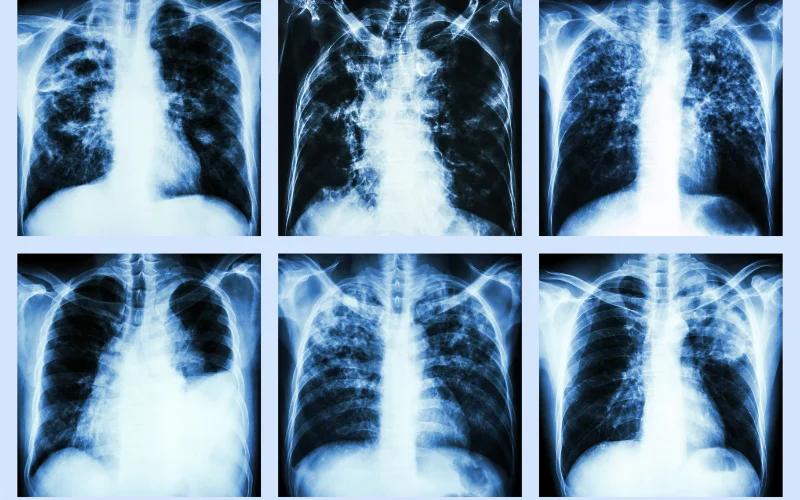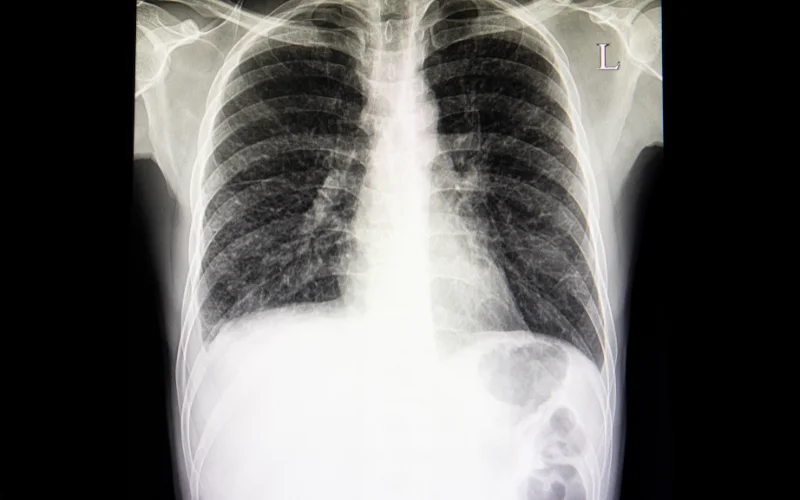Fluid around the heart, medically known as pericardial effusion, is a condition where excess fluid accumulates in the pericardial cavity, the sac surrounding the heart. This buildup can lead to serious complications if not addressed promptly. Understanding what causes fluid around the heart is crucial for early diagnosis and effective treatment. In this article, we will explore the causes, symptoms, diagnosis, and treatment options for pericardial effusion.
Key Takeaways
- Pericardial effusion is the accumulation of excess fluid in the pericardial cavity.
- Causes include infections, inflammatory diseases, trauma, cancer, and other medical conditions.
- Symptoms can range from chest pain to shortness of breath and fatigue.
- Diagnosis involves physical exams, imaging tests, and laboratory tests.
- Treatment options vary from medications to surgical procedures.
What is Pericardial Effusion?
Pericardial effusion refers to the abnormal accumulation of fluid in the pericardial cavity. The pericardium is a double-walled sac that contains the heart and the roots of the major blood vessels. Normally, a small amount of fluid is present in this cavity to reduce friction between the heart and the pericardium during heartbeats. However, when excess fluid accumulates, it can compress the heart and impair its function.
What Causes of Fluid Around the Heart?

Understanding what causes fluid around the heart is essential for early diagnosis and effective treatment. There are multiple reasons why fluid may accumulate in the pericardial cavity, and they can be broadly categorized into infections, inflammatory diseases, trauma, cancer, and other medical conditions.
Infections
Bacterial infections like tuberculosis can lead to pericardial effusion. The bacteria invade the pericardium, causing inflammation and fluid buildup. Similarly, viral infections such as Coxsackievirus and HIV are common culprits. These viral infections can cause inflammation of the pericardium, leading to fluid accumulation. Though rare, fungal infections can also cause pericardial effusion, usually occurring in individuals with weakened immune systems.
Inflammatory Diseases
Autoimmune diseases like rheumatoid arthritis and lupus can cause inflammation in various parts of the body, including the pericardium, resulting in fluid buildup. Pericarditis, which is the inflammation of the pericardium itself, can also lead to fluid accumulation. This condition can be acute or chronic and is often triggered by infections or autoimmune reactions.
Trauma or Injury
Chest trauma from accidents or surgical procedures can damage the pericardium, leading to fluid accumulation. Post-operative complications from heart surgery can sometimes result in pericardial effusion. Additionally, radiation therapy for cancers in the chest area can sometimes cause pericardial effusion. It’s also important to note that chest pain due to constipation, while not directly causing pericardial effusion, can exacerbate discomfort and complicate the diagnosis of chest-related issues.
Cancer
Metastatic cancers such as lung, breast, and lymphoma can spread to the pericardium, causing fluid buildup. Although rare, primary pericardial tumors originating in the pericardium can also lead to pericardial effusion.
Kidney Failure
Severe kidney disease can lead to fluid retention, including around the heart. This condition, known as uremic pericarditis, occurs in patients with severe kidney disease and results from the accumulation of urea and other waste products in the blood.
Hypothyroidism
Low thyroid hormone levels can cause fluid to accumulate in various body cavities, including the pericardium. Proper management of thyroid function is essential to prevent this complication.
Medications
Certain medications, such as anticoagulants and chemotherapy drugs, can increase the risk of pericardial effusion. It is crucial to discuss any potential side effects with a healthcare provider.
Symptoms of Fluid Around the Heart

The symptoms of fluid around the heart can vary depending on the amount of fluid and the underlying cause. Here are some common symptoms:
- Chest Pain: Often sharp and worsens with deep breathing or lying down.
- Shortness of Breath: Difficulty breathing, especially when lying flat.
- Fatigue: General feeling of tiredness and weakness.
- Palpitations: Irregular or rapid heartbeats.
- Swelling: Swelling in the legs or abdomen due to poor circulation.
- Cough: Persistent cough due to pressure on the lungs.
- Low Blood Pressure: Reduced blood pressure can occur if the effusion significantly impairs heart function.
Diagnosis of Pericardial Effusion

Diagnosing pericardial effusion involves a combination of physical examinations, imaging tests, and laboratory tests.
Physical Examination
A doctor may detect signs of pericardial effusion through a physical examination, such as hearing abnormal heart sounds with a stethoscope.
Imaging Tests
- Echocardiogram: The most common test to diagnose pericardial effusion, it uses sound waves to create images of the heart.
- Chest X-ray: Can show an enlarged heart silhouette if a significant amount of fluid is present.
- CT Scan or MRI: These imaging tests provide detailed images of the heart and pericardium.
Laboratory Tests
Blood tests can help identify underlying conditions such as infections or autoimmune diseases that may be causing the effusion. Specific tests may include:
- Complete Blood Count (CBC): To check for signs of infection or inflammation.
- C-reactive Protein (CRP): Elevated levels indicate inflammation.
- Erythrocyte Sedimentation Rate (ESR): Another marker of inflammation.
- Thyroid Function Tests: To check for hypothyroidism.
- Kidney Function Tests: To assess kidney health and function.
Treatment Options for Pericardial Effusion

The treatment of pericardial effusion depends on the underlying cause and the severity of the condition. Treatment options include medications and surgical procedures.
Medications
Medications are often the first line of treatment for pericardial effusion. Anti-inflammatory drugs like ibuprofen or colchicine can reduce inflammation and fluid buildup. Antibiotics are used to treat bacterial infections causing pericardial effusion. Diuretics help reduce fluid accumulation by increasing urine output, while steroids may be prescribed for severe inflammation or autoimmune-related effusion.
Surgical Procedures
When medications are not sufficient, surgical procedures may be necessary. Pericardiocentesis is a procedure where a needle is inserted into the pericardial cavity to drain excess fluid. This is often performed under ultrasound guidance to ensure accuracy. Pericardiectomy, the surgical removal of part or all of the pericardium, is usually reserved for recurrent cases or when the pericardium becomes thickened and scarred (constrictive pericarditis). Another option is a pericardial window, a surgical procedure where a small part of the pericardium is removed to allow continuous drainage of fluid into the chest cavity, where it can be absorbed by the body.
Preventive Measures

Preventing pericardial effusion involves managing underlying conditions and adopting a healthy lifestyle.
- Regular Check-ups: Regular medical check-ups can help detect potential issues early.
- Manage Chronic Conditions: Proper management of chronic diseases like lupus or rheumatoid arthritis can prevent complications.
- Healthy Lifestyle: Maintaining a healthy lifestyle, including a balanced diet and regular exercise, can reduce the risk of conditions leading to pericardial effusion.
- Avoid Infections: Practice good hygiene and take preventive measures to reduce the risk of infections that can lead to pericardial effusion.
- Medication Management: Ensure that medications are taken as prescribed and discuss any potential side effects with a healthcare provider.
Conclusion
Understanding what causes fluid around the heart is essential for early diagnosis and effective treatment of pericardial effusion. This condition can result from various factors, including infections, inflammatory diseases, trauma, cancer, and other medical conditions. Early detection and appropriate treatment are crucial to prevent complications and ensure a healthy heart. By managing underlying conditions, adopting a healthy lifestyle, and seeking prompt medical attention when symptoms arise, individuals can reduce the risk of developing pericardial effusion.
FAQs
How long does it take to recover from pericardial effusion?
Recovery time from pericardial effusion varies depending on the underlying cause and the treatment received. Some patients may recover within a few weeks, while others with more severe cases or underlying conditions may take several months.
Can pericardial effusion recur after treatment?
Yes, pericardial effusion can recur, especially if the underlying cause is not fully resolved or is chronic. Regular follow-up with a healthcare provider is essential to monitor for recurrence and manage any underlying conditions.
Are there any dietary restrictions for individuals with pericardial effusion?
While there are no specific dietary restrictions for pericardial effusion itself, maintaining a heart-healthy diet can be beneficial. This includes reducing salt intake, eating plenty of fruits and vegetables, and avoiding processed foods to support overall cardiovascular health.
Can pericardial effusion be detected during a routine check-up?
Pericardial effusion can sometimes be detected during a routine check-up if the healthcare provider notices abnormal heart sounds or symptoms. However, specific diagnostic tests like echocardiograms are usually required for a definitive diagnosis.
Is pericardial effusion life-threatening?
Pericardial effusion can be life-threatening if it leads to cardiac tamponade, a condition where the accumulated fluid compresses the heart and impairs its ability to pump blood. Prompt medical intervention is crucial to prevent severe complications.







